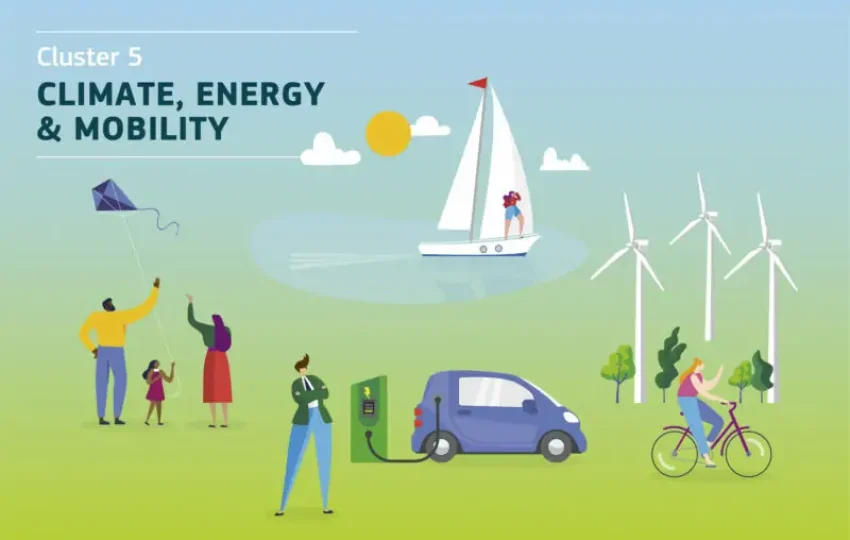Over the past few years, we have noticed an array of natural disasters that have affected multiple parts of Europe. These disasters have caused a great number of casualties as well as billions of euros in damage to infrastructure.
Businesses are being affected in the worse way possible and EU citizens have not been protected in the best way possible. Building on that premise, the European Parliament as well as the Council of the European Union decided to take strong and important steps towards political agreement on rescEU. It is the plan that will strengthen EU civil protection response to disasters.
The plan is focusing on strengthening the already existing EU Civil Protection Mechanism. To do that, a new reserve of capacities will be established. These capacities will include forest fighting planes, special water pumps, urban search and rescue, and finally field hospitals as well as emergency medical teams.
“A Europe that protects citizens has to be there in times of need. When there is a dangerous forest fire or a flood overwhelming national response, our citizens want action, not words. rescEU will ensure concrete solidarity with our Member States hit by disasters.”
Jean-Claude Juncker, President
“Natural disasters know no borders and climate change is increasing their risks and impact. With rescEU our current Civil Protection Mechanism will be taken to the next level. Today’s positive development proves that when there is a will, there is a way. I am grateful to the European Parliament, in particular to the rapporteur Elisabetta Gardini MEP and the budget’s draftsman Jose-Manuel Fernandes MEP as well as to the Austrian Presidency for their leadership. With the upgraded EU Civil Protection Mechanism there will be more capacities, better coordination between the Member States, and above all more effective solidarity to our citizens. This is a European solution to a European challenge.”
Christos Stylianides, Commissioner for Humanitarian Aid and Crisis Management
Measures to Strengthen the EU capacities
Focusing on the capacities that will need strengthening, the EU is ready to take new measures that will add value to their current actions and will strengthen the EU capacities. Here is a quick look at the measures taken:
- In collaboration with the Member States, a common EU reserve of capacities will be established aiming at responding to all disasters. That will include firefighting planes, teams that will respond to medical emergencies, chemical biological radiological, and nuclear incidents.
- Co-finance the operational costs of rescEU capacities when used for the EU’s Civil Protection Mechanism operations;
- Co-finance the development of rescEU capacities;
- Increase financial support for capacities registered in the European Civil Protection Pool, including for adaptation, repair, operational costs (inside the EU), and transport costs (outside the EU).
Disaster risk management in the EU
Here is how the EU will step up and support all Member States in improving their disaster risk management:
- Establish a simplified reporting framework, focusing on key risks of a cross-border nature and risks of low probability with high impact;
- Provide support to the Member States to increase their existing measures through consultation mechanism and, deployment of expert missions and follow-up recommendations;
- Share knowledge and lessons through the setting up of a new EU Civil Protection Knowledge Network.
Implementing the rescEU plan
Actions are being taken since 2018 to implement the rescEU plan. One of the most important actions is the addition of 2 more firefighting planes to the reserve. This is a great way to prepare for the risk of forest fires during the summer of 2020 bringing the fleet to a total of 13 airplanes and 6 helicopters, as part of the rescEU fleet in 2020, funded by the EU.
RescEU plan Establishment
The EU’s Civil Protection Mechanism was so far based on a system, through which the EU coordinates the voluntary contributions of the EU Member States and the Participating States to a country that has requested assistance. Offers of assistance are coordinated by the European Emergency Response Coordination Centre (ERCC) based in Brussels. In recent years, extreme weather conditions and new emerging threats have stretched the ability of Member States to help each other, especially when several Member States face the same type of disaster simultaneously. In such cases where there is limited or no availability of assets, rescEU steps in to provide additional capacities to confront disasters in Europe.
The EU is already opening calls for proposals that will enhance all processes and will support the rescEU plan. See below some of the most promising calls for funding:
Call: Preparedness and Response to Natural Disasters
Deadline: 17/06/2020
Description: Natural disasters are extreme and sudden events caused by environmental factors that injure people and damage property. Extreme implies that such events are very severe, sudden implies that they also happen unexpectedly. Although there is no a precise pattern of the occurrence of such phenomenon, the general trend, is that: a) the yearly number of natural disasters increases, b) the disasters are becoming extraordinarily more powerful and active in a shorter period.
Call: A Platform for the long-range indirect fire support capabilities
Deadline: 01/12/2020
Description: Due to the evolution of the defense context in Europe, land forces need the ability to operate in a high-intensity threat environment, facing potential technically advanced adversaries. In this context, associated firepower to the protection of forces like artillery capabilities needs to have their range, precision, and efficiency improved.
The proposals must address the development of enhanced European artillery through the upgrade of current and development of next-generation of indirect fire (IDF) artillery systems (both gun self-propelled systems and rocket launchers).
For more information, you can visit the EU’s official news portal and stay tuned to EUcalls latest news and updates!


